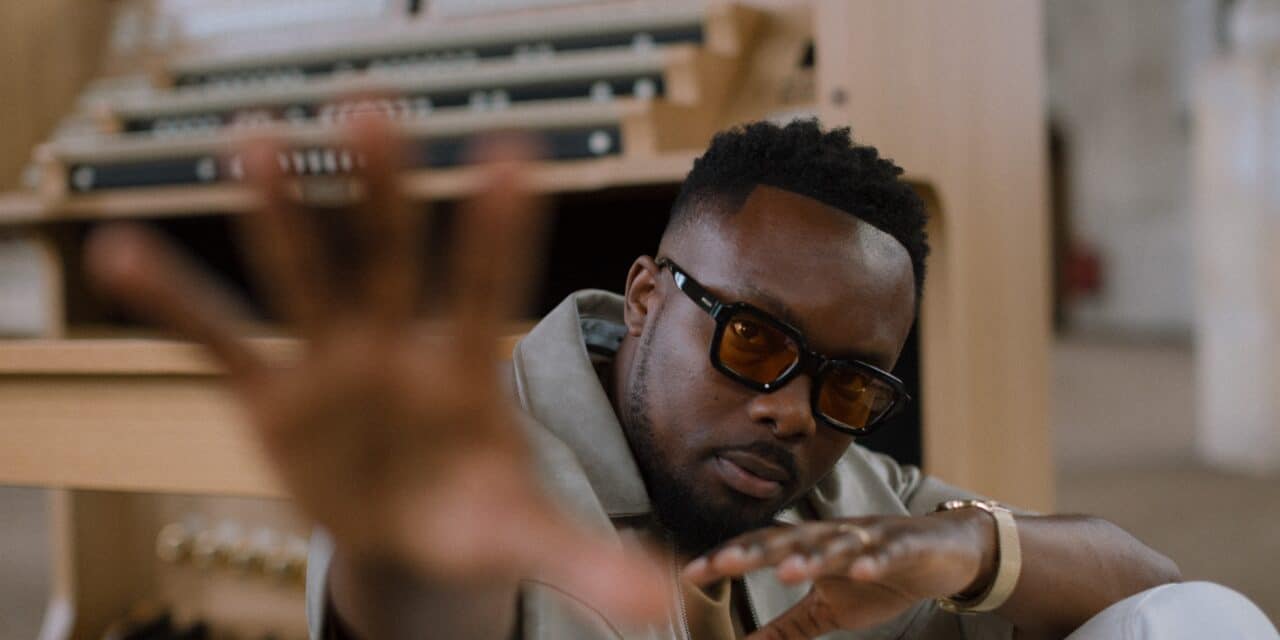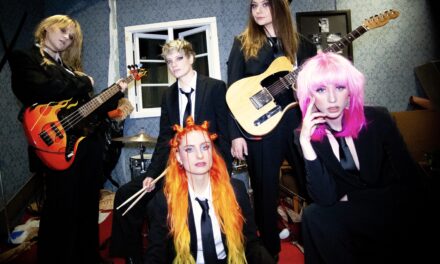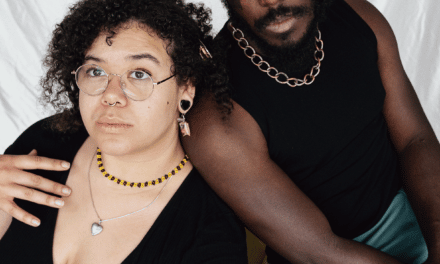MOBO Award-winning rapper and chart-topping Christian artist Faith Child doesn’t flinch. On his third studio album, When Faith Feels Far, he walks straight into the storm—grief, doubt, unanswered prayers—and comes back with songs that wrestle honestly and still choose the light. It’s a faith record for real life: vulnerable, unpretentious, and built to lift.
Anchored by the Official UK Christian & Gospel #1 single “Oluwa Is Involved” and the radiant “Wildfire” featuring GRAMMY winner Erica Campbell (Mary Mary), the 15-track set maps the distance between heartbreak and healing with uncommon clarity. Across rap, gospel, afrofusion, electronica, and pop, Faith Child moves with signature fluency, tapping producers Komenz (Shakka, GoldLink), Alex E (Labrinth), Tytanium (Joeboy), and GKiD (Guvna B) for a lush, forward-thinking palette that never loses sight of the message.
He tells the truth in real time. “Good Mourning” sits in the paradox of praying for healing while preparing to say goodbye. “Unbelief” (with CalledOut Music) borrows language from Mark 9 to name faith under pressure. “Church Hurt” (with Briggs the Wordsmith) and “A Million Miles” extend empathy to the wounded, while “Stereotype” and “Older” confront prejudice and cycles of violence head-on. When joy breaks through, it’s contagious: “Holy Place” (with Joe L Barnes of Maverick City Music) turns daily obedience into a stadium-ready chant; “Oluwa Is Involved” testifies that every win belongs to God. Elsewhere, “Cardio,” “Fast Life,” “New Era” (with KB and Ty Brasel), “Flexodus,” and “Creator of the World” braid restoration, discipline, and worship into hooks that stick.
If the themes are heavy, the execution is featherlight—melodies that glide, verses that cut, choruses that refuse to leave. It’s the sound of an artist who knows stadiums and small rooms, who’s performed in over 25 countries and still writes like he’s speaking to one person who needs it most.
Faith Child’s origin story is the stuff of testimony—his mother, close to terminating her pregnancy, says she heard God tell her to keep the child—and his catalog has mirrored that purpose from the jump: the breakout IllumiNATION (the fastest-selling UK gospel rap album of its year), the top-5 follow-up Airborne, and a run of cult favorites (“New Era,” “Chosen One,” “Over Me”). When Faith Feels Far is the most candid chapter yet: a companion for valleys and victories, unafraid of the dark, anchored in the light.
Tracklist Highlights
• “Catfish” — scene-setting candor and crisp percussion.
• “Unbelief” (feat. CalledOut Music) — elegant scripture-soaked confession.
• “Church Hurt” (feat. Briggs the Wordsmith) — empathy with bite.
• “Oluwa Is Involved” (feat. Marizu) — chart-topping gratitude anthem.
• “Holy Place” (feat. Joe L Barnes) — worship with widescreen ambition.
• “Wildfire” (feat. Erica Campbell) — summery lift with gospel glow.
• “Good Mourning” — heart-in-throat farewell and fierce hope.
• “New Era” (feat. KB & Ty Brasel) — iron-sharpens-iron cypher energy.
On the Road
The When Faith Feels Far tour hits Europe and the UK this fall—Budapest, Berlin, Prague, London and more—bringing the album’s mix of conviction and celebration to the stage.
When Faith Feels Far isn’t a neat resolution; it’s an honest conversation with God and with ourselves, ending not with easy answers but with durable hope. Faith Child made this one for the days belief feels distant—and for the moment it returns.
The title When Faith Feels Far is a sentence, a mood, and a confession. When did that phrase first land for you—and what moment confirmed it was the album’s true north?
The phrase landed when I found out my dad was on life support and could pass at any given moment. Faith felt far, but God was near. The juxtaposition of the two birthed the tension of wrestling and resting in God.
You process the loss of your father across the record without turning grief into spectacle. What did you learn about making space for lament while still writing songs that lift?
That grief and hope can co-exist at the same time. It’s not that the weight of grief decreases, but more so our capacity increases. You can only hear that which you reveal, so being about to write and voice how I was feeling, helped me to do through the motions and process my thoughts.
On “Unbelief” you echo Mark 9’s “I believe; help my unbelief.” How did you translate that tension—the prayer that admits doubt—into a chorus people can actually sing in the dark?
By being authentic and relaying whatever raw emotion I felt. We don’t have to be polished and perfect to talk to God. He takes our unfiltered ramblings and meets us where we’re at. I love that bible verse so much. The young boy’s father says, ‘Lord, I believe, but help my unbelief,’ and Jesus still answers him. That always stuck with me, especially because I grew up hearing that unanswered prayers came down to a lack of faith. But here you see someone admit their doubt and still encounter God’s power.
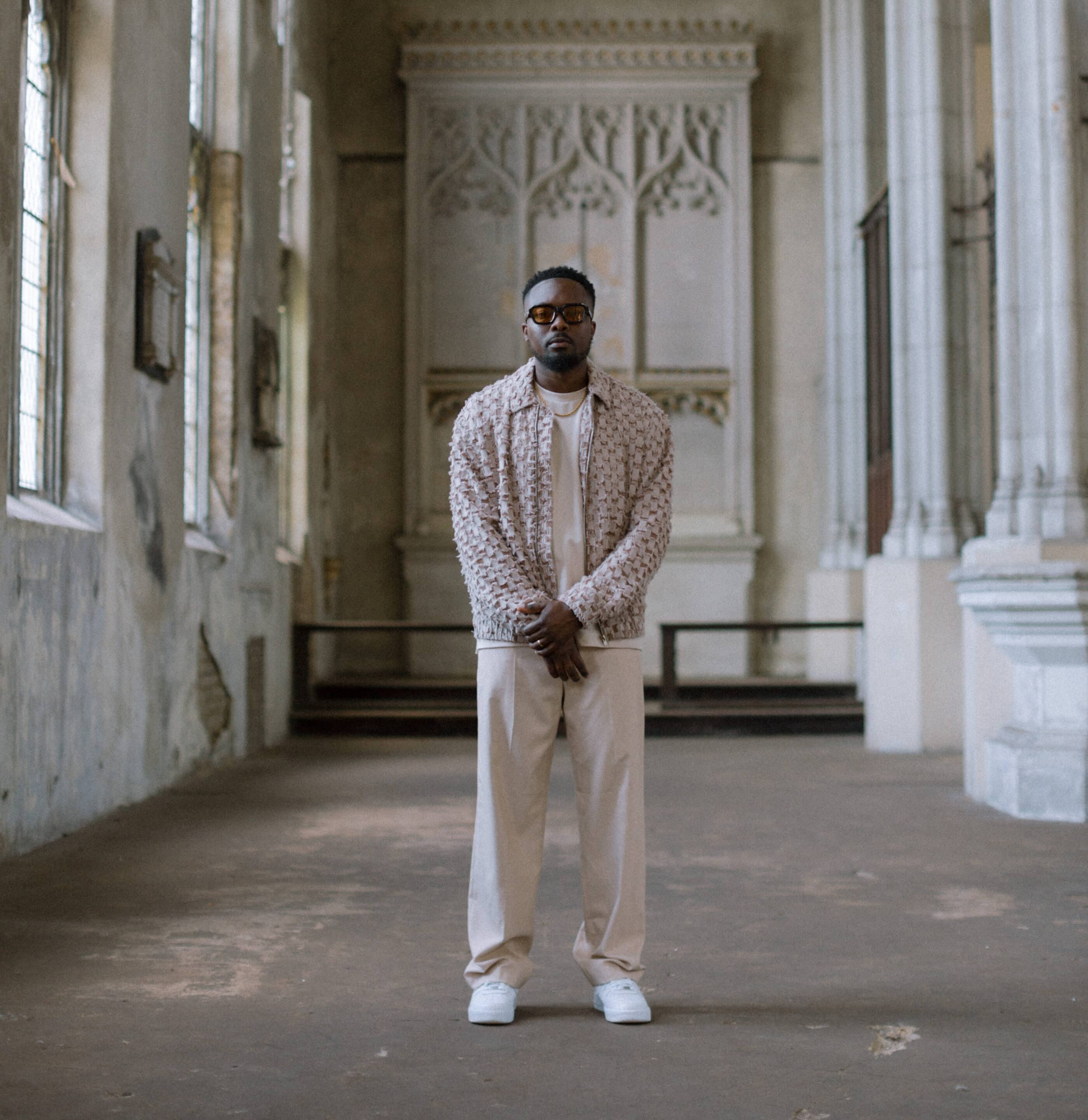
That’s what I wanted the song to capture, that tension we all feel between knowing God can and wondering if He will. I think that speaks not just to people hanging by a thread, but even to sceptics. It’s a reminder that God welcomes us in weakness. We don’t need to have it all figured out before we come to Him.
“Good Mourning” sits in the paradox of praying for healing while preparing to say goodbye. What did writing that song require of you emotionally—and what boundaries did you set for your own heart in the studio?
I wrote verse one a couple of days after hearing my dad was on life support, and then verse two about six weeks later when he passed. Those weeks gave me time to process what was happening and almost prepare myself for what was coming. In verse two, I say, ‘death is the friend of a righteous man going home’ and that’s really the hope I held onto.
Christians talk a lot about heaven, but the only way there is either via rapture or death. So while it was devastating, I found peace in knowing my dad wasn’t in pain anymore, he wasn’t carrying the weight of this world, he was finally at rest. Recording it was tough, but it was also healing. Listening back to the song, I don’t even know how I managed to articulate something so raw and honest, and in real-time, but it help bring clarity and hope.
“Church Hurt” and “A Million Miles” extend empathy to people wounded by the faith community. What did accountability look like for you while making those tracks—and who did you hope would feel seen?
Accountability meant acknowledging that the church has caused hurt, both intentionally and unintentionally, and recognising that work needs to be done to make things right. I wanted the song to help begin the journey of healing for those who have been hurt and who long for a space to be heard. We are human, and we will not get it right every time, but it is important to put our hands up when we miss the mark.
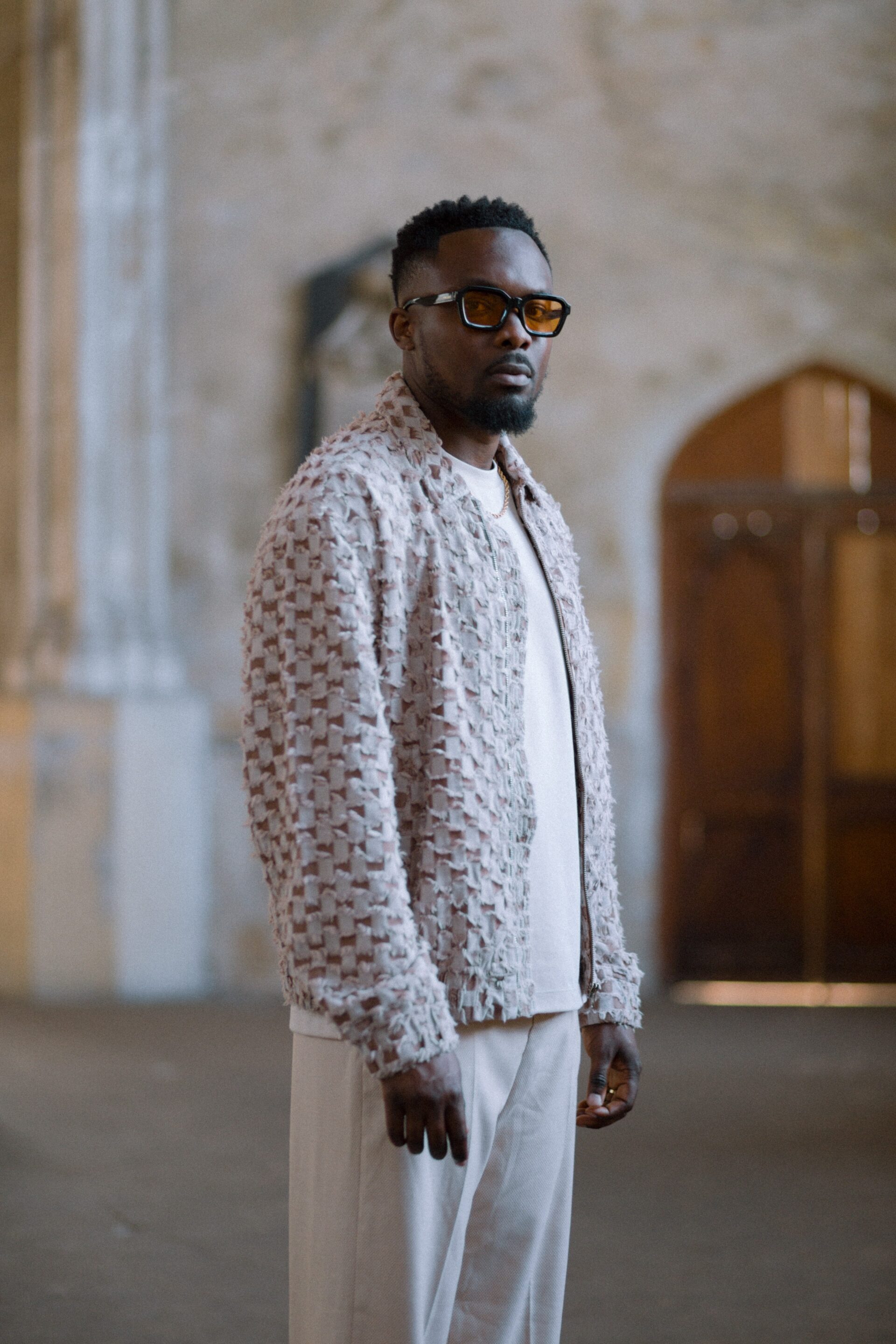
Joy breaks through on “Oluwa Is Involved” and “Holy Place.” How do you hold celebration and sorrow on the same album without either feeling dishonest?
Big thanks to my wife and the band. Earlier this year, we were in our dressing room working through the album sequencing, trying to create a musical journey, and we decided to break the album into themes. This allowed the listener to travel with me. Grief comes in waves. you might be having a fantastic time, and then, out of nowhere, your mood can drop. Being authentic to who I am as a person, and to the realities of life, allowed the chaos and calm to coexist.
Sonically you braid rap, gospel, electronica, afrofusion, and pop. What’s a production decision—courtesy of Komenz, Alex E, Tytanium, or GKiD—that unlocked the record’s emotional core?
Eighty-five per cent of my music catalogue is not actually written to music. I tend to write in my head, record an a cappella version, and then send it over to my producers. We would then discuss the direction we are aiming for and the emotion we want to convey, and build from there. Allowing the producer to do their job is crucial, as they can often hear something we as artists cannot, and once they are done, the vision comes to life. Producers are the real MVPs.
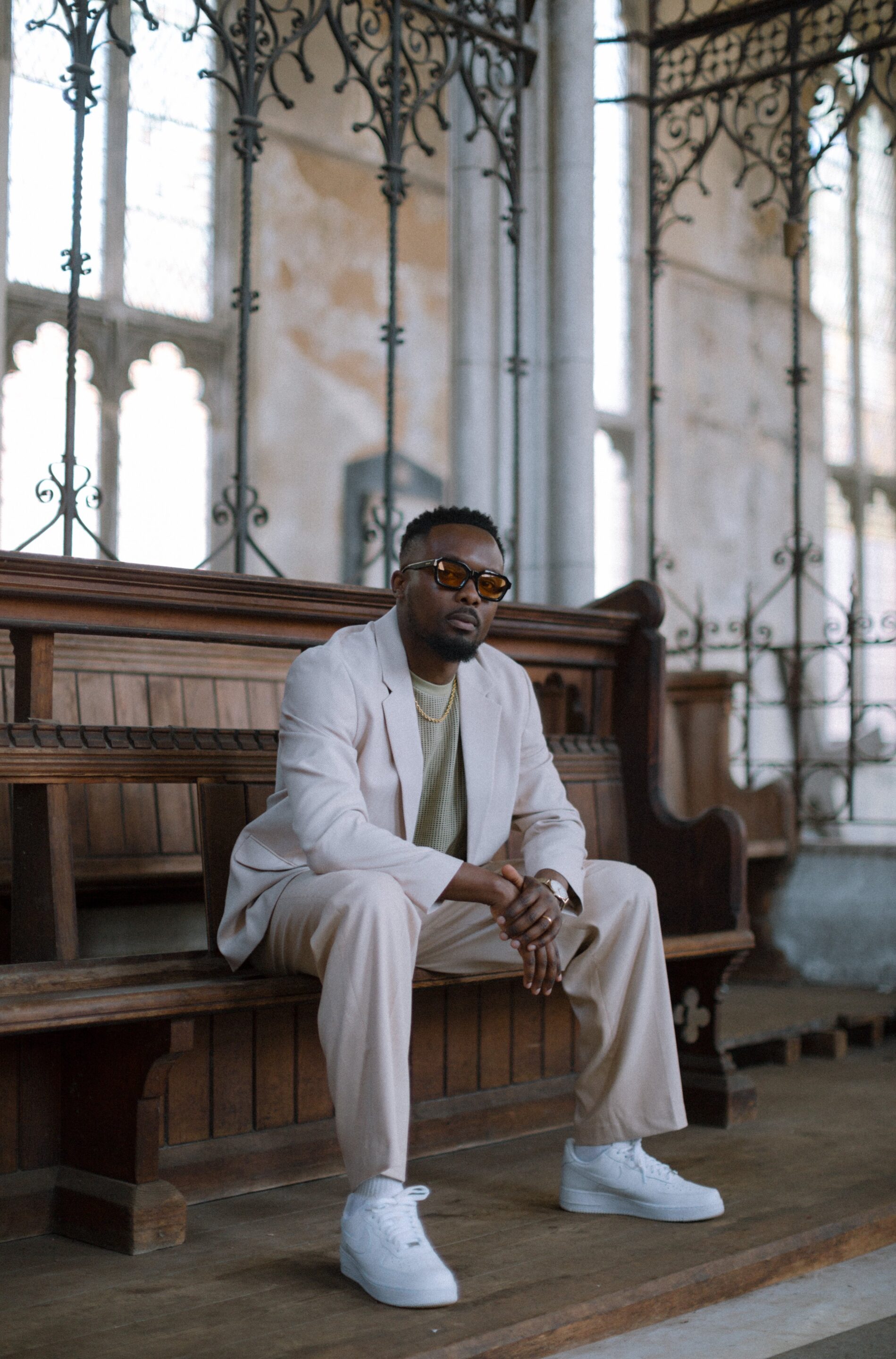
The guestlist is stacked: Erica Campbell, Joe L Barnes, CalledOut Music, Marizu, KB, Ty Brasel. Beyond the credits, what human moment with a collaborator captured the spirit of this album?
Working in the studio with Calledout Music was a fantastic experience, especially when he suggested a new direction for the chorus of “Unbelief.” The chord progression was quite different, and his suggestion to change it was one of those lightbulb moments that only happen when you are in the same room, collaborating. Technology now allows us to work remotely, but nothing beats the connection of creating together in person.
On “Stereotype” and “Older,” you confront prejudice and cycles of violence. How do you write truth-to-power records that still feel like invitations rather than indictments?
I think the choice of words, coupled with the heart behind the intention, dictates the outcome of the situation.
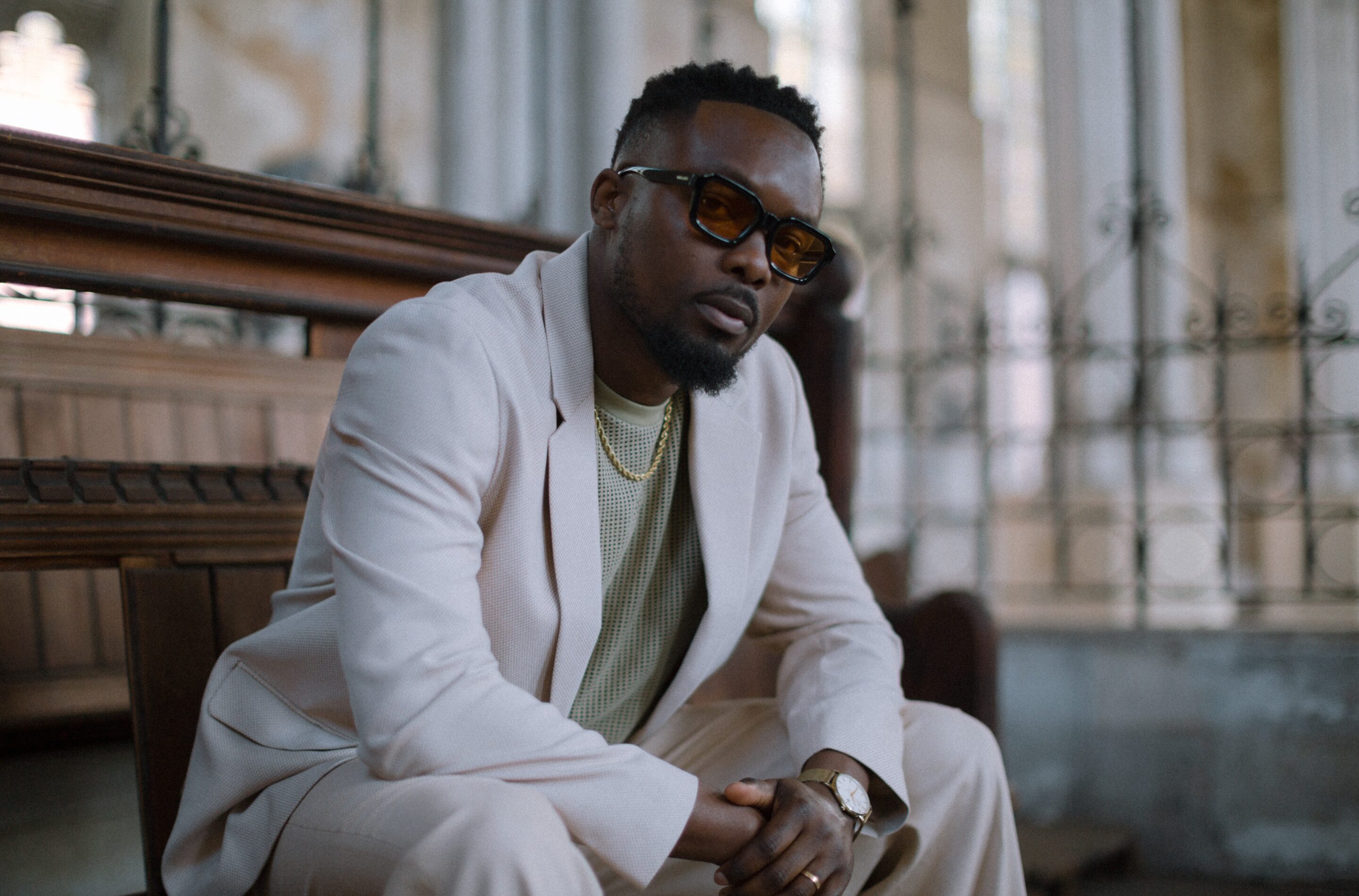
Approaching the matter from a place of compassion, as opposed to condemnation, allows the listener to take it in with an open heart.
You’re taking these songs across Europe and the UK this fall. How are you building a set that carries audiences from valley to victory—and what’s the one live moment you can’t wait for them to experience?
I’m almost tempted to perform the album in tracklist order, but what listeners can expect is a musical and emotional rollercoaster. We will start with high energy, mellow out in the middle, and then finish big. I cannot wait to see the reaction to songs like “Catfish” and “Flexodus.” At the same time, I am curious to see how a track like “Good Mourning” will go down live. I suppose there is only one way to find out!

